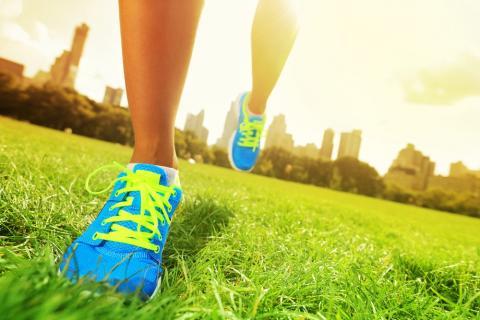
As humans, we need movement: exercise keeps our cardiovascular system healthy, keeps our bones strong, improves our blood circulation, and can even lower our risk for certain diseases. Ideally, we should start moving as young children, but even if you’ve never taken a group class, gone for a run, practiced yoga, or tried to swim, it’s not too late to start.
For many, starting a new workout program isn’t the problem; it’s maintaining the consistency. It can be helpful to remember why you’re exercising in the first place:
- To feel better
- To move with more ease
- To prevent injury
- To live longer
- To increase energy
- To reduce risk for cardiovascular diseases, diabetes, obesity, and high blood pressure
- To lose weight or gain strength
- To improve circulation
- To improve cholesterol
- To reduce pain of osteoarthritis
- To help with depression or mental health issues
- To improve sleep
- To increase metabolism
For Beginners
For those new to working out, start slow. Unless you’re inclined towards a gym, you can actually begin right at home with a few simple movements. Try squats, planks, burpees, shoulder taps, and a variety of ab exercises to start. Strengthen your muscles and work on flexibility at the same time by following along with a yoga video. Vinyasa yoga, also referred to as yoga flow, can be challenging, while hatha is gentle and a great way to settle into longer poses.
Further ideas include 10-minutes of brisk walking that begins and ends with a 5-10 minute warm-up and cool-down, a 20-minute swim, or even a swing dancing class with a friend. Find an activity that excites you.
Start by aiming to workout 3 times a week for 30 minutes at a time, or something that is doable for you. It’s far better to begin with even 10 minutes a day and build-up to something sustainable than to start with 2 hours and attempt to make that an everyday goal.
For Novices
Have you ever played on a sports team? Taken belly dancing lessons? Run a race? If you did in the past but haven’t worked out in years, don’t worry—it’s easier than you might think to start again.
Maintaining motivation to move can be as simple as finding a friend, signing up for a weekly class, preparing for a 5K race, or taking your kids on a hike. Those who have experience as an athlete may find it easier to return. If that’s you, start off with 20-30 minutes of activity 3-5 times a week, and increase as time allows.
For Experts
Even if you’re not a professional athlete, you might be an expert exerciser if you’ve consistently had a gym, running, or work-out routine for the past several years. For some, this might mean becoming a certified yoga teacher; for others it might mean racing local 10Ks or half marathons; for some, it might mean showing up to your Crossfit class day after day, working to improve upon your times and performances.
If this is you, then you probably don’t have trouble motiving yourself to get your workout in. What does become apparent, however, with lifelong movement lovers is the need to reduce the risk of injury. As we age, our muscle mass declines, our bones thin, and our metabolisms decrease. Older people are typically at a higher risk for injuries, often from lack of exercise, but those who have participated in sports their entire lives may also be at risk—in a different way. For them, slowing down can be the challenge.
For people that live very active lives, the importance of proper rest can’t be understated. This study highlights the need for recovery in a training program as a way to maximize both performance and improvement. This can mean ensuring that at least one day of the week is dedicated to true recovery.
Getting Started
- Don’t know where to start? Here are a few questions to ask yourself as you begin working out, seek to maintain consistency, or even slow down enough to recover well:
- Why? Why do you want to work out? Is it to look good? To feel your best? To complete a race? In short, what is your primary motivation?
- How often do you want to work out? How much time do you have to work out?
- What constitutes a work out for you? An hour at the gym? A run around the neighborhood? Taking your dogs for an evening walk? Parking at the far end of the lot? A yoga sequence upon waking in the morning?
- How can you support yourself holistically? How will you integrate vegetables, fruits, legumes, healthy fats, complex carbohydrates, and lean proteins to help your body build muscle and recover optimally?
Ultimately, exercise is not the be-all-end-all to a happy, fulfilled life but it can help to ensure that you have the freedom of movement and health for years to come. Find an activity you love, nourish your body, and enjoy the ride.
What activities do you partake in? Have you been a lifelong exerciser or are you looking to get started? Let us know in the comments below!








